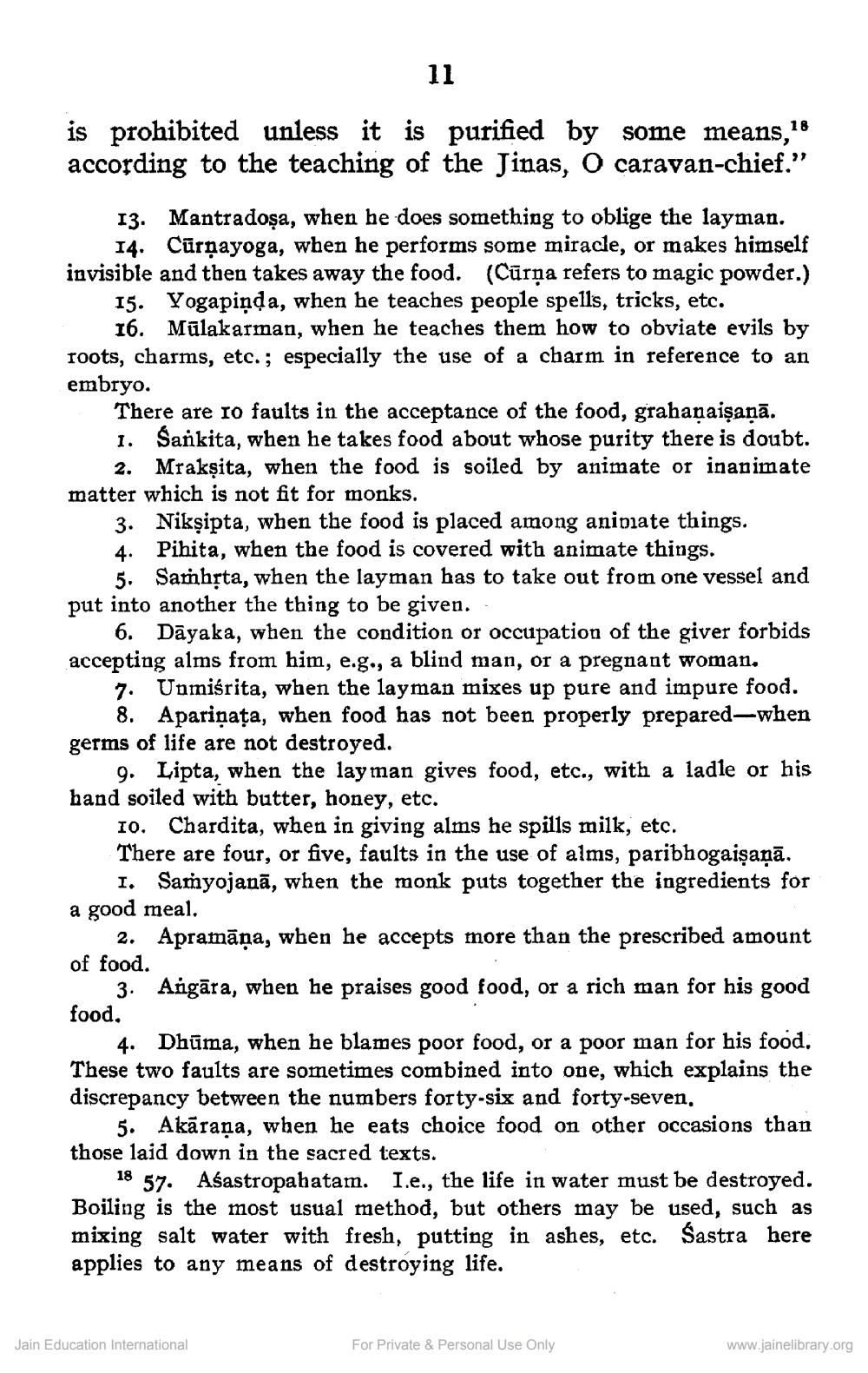________________
11
is prohibited unless it is purified by some means, 18 according to the teaching of the Jinas, O caravan-chief."
13. Mantradoșa, when he does something to oblige the layman.
14. Cürnayoga, when he performs some miracle, or makes himself invisible and then takes away the food. (Cūrņa refers to magic powder.)
15. Yogapiņņa, when he teaches people spells, tricks, etc.
16. Mülakarman, when he teaches them how to obviate evils by roots, charms, etc.; especially the use of a charm in reference to an embryo.
There are ro faults in the acceptance of the food, grahaņaişaņā. 1. Sankita, when he takes food about whose purity there is doubt.
2. Mrakṣita, when the food is soiled by animate or inanimate matter which is not fit for monks
3. Nikşipta, when the food is placed among anipiate things. 4. Pihita, when the food is covered with animate things.
5. Samhịta, when the layman has to take out from one vessel and put into another the thing to be given..
6. Dāyaka, when the condition or occupation of the giver forbids accepting alms from him, e.g., a blind man, or a pregnant woman.
7. Unmisrita, when the layman mixes up pure and impure food.
8. Apariņaţa, when food has not been properly prepared-when germs of life are not destroyed.
9. Lipta, when the layman gives food, etc., with a ladle or his band soiled with butter, honey, etc.
10. Chardita, when in giving alms he spills milk, etc. There are four, or five, faults in the use of alms, paribhogaişaņā.
1. Samyojanā, when the monk puts together the ingredients for a good meal.
2. Apramāṇa, when he accepts more than the prescribed amount of food.
3. Angāra, when he praises good food, or a rich man for his good food.
4. Dhūma, when he blames poor food, or a poor man for his food. These two faults are sometimes combined into one, which explains the discrepancy between the numbers forty-six and forty-seven,
5. Akāraņa, when he eats choice food on other occasions than those laid down in the sacred texts.
18 57. Aśastropahatam. I.e., the life in water must be destroyed. Boiling is the most usual method, but others may be used, such as mixing salt water with fresh, putting in ashes, etc. Sastra here applies to any means of destroying life.
Jain Education International
For Private & Personal Use Only
www.jainelibrary.org




